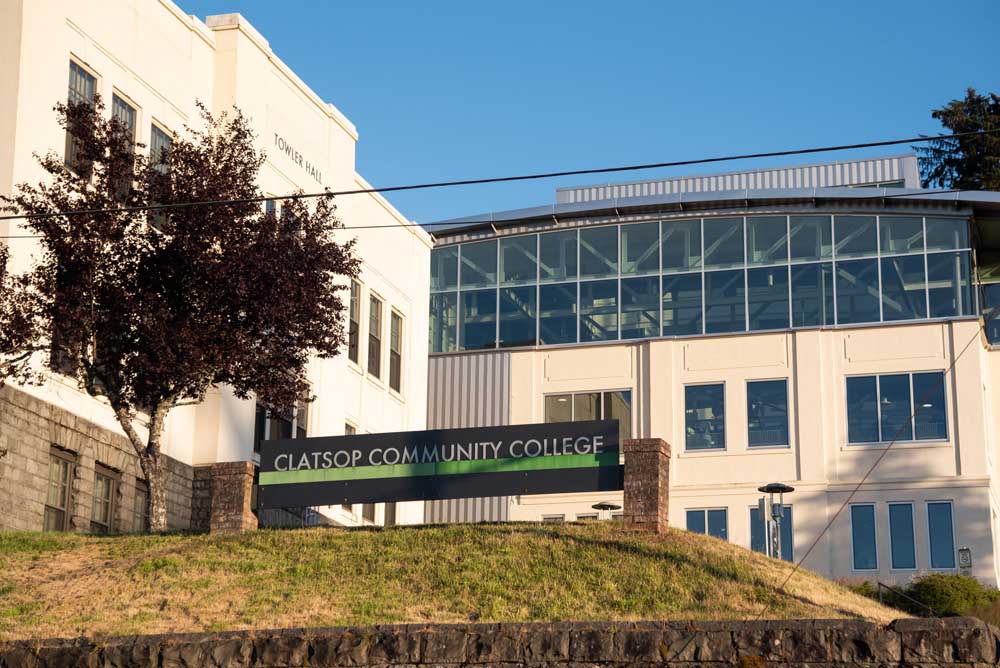Guest Column: A look back on a lifetime of change
Published 12:30 am Thursday, June 25, 2020

- Don Haskell
Being isolated from the coronavirus pandemic gave lots of time to reminisce about remarkable changes that have transformed the world and reshaped our lives since the 1930s. They’re changes most of us old-timers are thankful for.
Trending
Take aircraft, for example. Before World War II, jets and helicopters were never seen. Even propeller-driven airplanes weren’t seen very often. As a little kid in the 1930s, whenever I heard a plane, nobody thought it odd to run out of the house to look as it slowly flew overhead.
Today, hardly anybody notices U.S. Coast Guard helicopters, or notice that supersonic military jets fly faster than bullets fired from guns.
Indoor plumbing and modern toilets are other life-altering changes everybody now takes for granted. An early memory is standing on a chair at grandma’s kitchen sink pumping a long, green handle to get a drink of well water. Another is a dirt path to the privy, a two-hole plank that froze bottoms in the winter and smelled awful in the summer.
Trending
An outdated Sears, Roebuck & Co. catalog made you dream of stuff to send away for someday. And its pages passed for toilet paper. Today, it’s remarkable Astoria’s small rural population requires 68 miles of sewer pipe and 1,600 manholes.
In the 1930s, big city suburbs had lots of unpaved streets without any drains at all. When it rained really hard, our street in Ohio always filled waist-high that took two days to drain away. And nobody seemed concerned when we kids played with innertubes in the murky water.
Lack of street drains 80 years ago seems primitive, compared to today’s combined sewer overflow system in Astoria. Lots of folks around here don’t know that system is underneath the grassy softball field at Astoria High School. The effluent is stored in a huge concrete tank holding over a million gallons.
That engineering marvel keeps Astoria’s wastewater out of the Columbia River.
One sharp memory as a little kid is my mother’s joyful reaction when dad brought home an electric washing machine with wringers operated by a foot switch. Before that she washed clothes every Monday in a big metal tub with a washboard and wringers operated with a hand crank.
Automatic electric washers and dryers didn’t come into vogue until after World War II. Before that, clothes were fastened with wood clothespins to dry on a backyard line. And everybody pitched in to quickly take the clothes off the line whenever it looked like rain.
My first allowance was a dime a week. Four cents went for a movie on Saturday afternoon. And a penny for candy. The rest went into a milk bottle I used for a bank. By the time my allowance got to a quarter, movies cost a dime.
And after the attack at Pearl Harbor in 1941, my parents insisted my sisters and I listen to President Franklin Roosevelt whenever he spoke on the radio. But it seemed to me he always gave a speech whenever my favorite radio program was on.
To save gas for the war effort, the speed limit all over America during World War II was 35 mph. If you drove faster than that, you were unpatriotic and yelled at. While America today is energy independent, Clatsop County is still dealing with pollution caused by World War II shipbuilding. And America 80 years later is still cleaning up wartime’s nuclear Hanford site just 280 miles east of Astoria.
Toward the end of World War II, television sets began to appear in furniture stores. The sets had tiny 2-inch black and white screens in the middle of gigantic wooden boxes taller than I was. And they cost a small fortune. Today, color television sets are an inch thick and 6 feet wide. They’re so affordable almost everybody in the country owns at least one.
My first car at 16 was a well-used 1935 Hudson Terraplane 8-cylinder powerhouse. It cost $75. All high school parking lots today show teenagers’ lust for cars is one thing that hasn’t changed at all over the years.
When I got out of law school in the 1950s, I remember wondering how I would ever make a living with 150,000 other lawyers in America. Yet by 2020, America’s lawyer population grew to 1.35 million. And with about 4% of the world’s population, today’s America has 70% of the world’s lawyers.
In the late 1970s my Chicago law firm installed an up-to-date, high-tech computer. It had its own air-conditioned room, was much bigger than today’s biggest refrigerator and ran reels of tape. And the damn thing, which cost a mind-boggling $100,000, kept breaking down every couple of days.
Today, cellphones are tiny computers that have unbelievably more power than that huge office computer of 40 years ago.
Around the late 1970s, a friend suggested I buy stock in the company he worked for. The company had the odd name of Microsoft. Alas, I thought computers were nothing but expensive headaches and didn’t take my friend’s advice.
For many years, calling overseas or sending messages with a telex machine cost a lot of money. Nowadays with WhatsApp and Wi-Fi you can text for free anywhere in the world. Coin-operated telephone booths on street corners and in businesses have all but disappeared. Technology replaced switchboards and switchboard operators. Just like copiers and printers replaced carbon paper, stencils and mimeograph machines. And like computers replaced typewriters and word-processing machines.
In the 1980s, French clients insisted I fly the supersonic Concorde for meetings in Paris. The plane flew so high the daytime sky was black and the earth’s curvature looked awesome. Oddly enough, it took less time to fly nonstop from Chicago to Paris on a Boeing 747. That’s because I had to fly to New York or Washington, D.C., to get on the Concorde.
In those days, sonic booms prohibited the Concorde from flying over populated areas. Newly designed supersonic airplanes now in the works, however, will eliminate sonic booms, soon fly anywhere in the world, and cause another life-altering change in the way we travel.
It took me years to fully appreciate the greatest life-altering change of my lifetime — the development of computers and the dramatic way they’ve changed the world and the way we live. Today my great-grandchildren have a lot of fun playing mesmerizing games on tiny computers. Even the 2-year-old presses the right buttons on his mother’s cellphone.
And when I tell my great-grandchildren I spent almost my entire life without a cellphone, they look at me wide-eyed as if I couldn’t possibly be that old. Makes me wonder what life-altering changes Methuselah felt thankful for.








